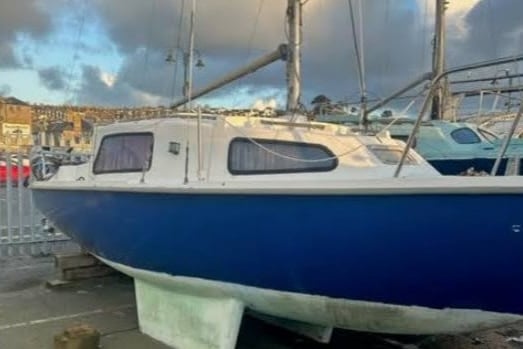CORNWALL Council will consider a bid to get rid of hundreds of abandoned boats around the Duchy’s coastline, estuaries and waterways.
There is growing concern about the number of rotting boats which are leaking oil, diesel, toxic paints and microplastics into the ocean.
A motion, proposed by Cllr Martyn Alvey and seconded by Cllr Kate Ewert, recommends that Cornwall Council and stakeholders commit to clean up the huge number of end-of-life boats across Cornwall and work to promote ways of recycling glass reinforced plastic (GRP) and encourage manufacturers to use more sustainable materials for new boats.
The council will also be asked at its meeting on Tuesday, July 22 to lobby the government to consider introducing tougher legislation to combat the increasing threat of abandoned vessels on the marine environment.
The motion report states: “The majority of abandoned boats were built in the ’70s and ’80s. Boats have got bigger and production volumes have increased along with a significant increase in leisure craft now on the water, so the scale of the problem is only going to grow.
“For example, there are over 4,500 moorings on the Fal Estuary alone. That’s estimated to be over 30,000 tonnes of (mostly) GRP boats which at some point will reach the end of their lives.
“Whilst harbour authorities may have the powers to remove abandoned boats, this is a highly costly exercise for them which they may be unable or unwilling to fund. This is compounded in Cornwall by our complex foreshore and fundus ownership and a particularly diverse harbour authority make-up.”
In the Fal alone there are six separate harbour authorities ranging from small privately owned harbours and a large ‘trust port’ to those in municipal (Cornwall Council) ownership. The challenge is further compounded by many of the creeks and rivers across Cornwall not being under the control of any harbour authority at all.
“The nub of the issue is that when a car reaches the end of its life you can relatively easily take it to a scrapyard and even get paid a few hundred pounds in ‘scrap value’ and most of it will get recycled” adds the report. “However, it costs a lot of money to dispose of a boat responsibly, particularly if it is still on the water, so sadly they often get left in the corner of a creek to die, leaking toxic paints, oils and microplastics into the ocean.”
Cornwall Harbours has powers under the recent Harbour Revision Order to remove and dispose of abandoned boats and recover the cost from the owner, if they are known and have funds to pay.
They have safely salvaged and scrapped 74 abandoned vessels since 2015 at a significant cost to Cornwall Harbours, which although Cornwall Council-owned is self-funded by harbour revenues, not by the taxpayer.
However, it would be a lot cheaper if the organisation could deal with end of life boats before they get abandoned. “The longer they are left to decay the more difficult and expensive they are to deal with,” states the report.





Comments
This article has no comments yet. Be the first to leave a comment.